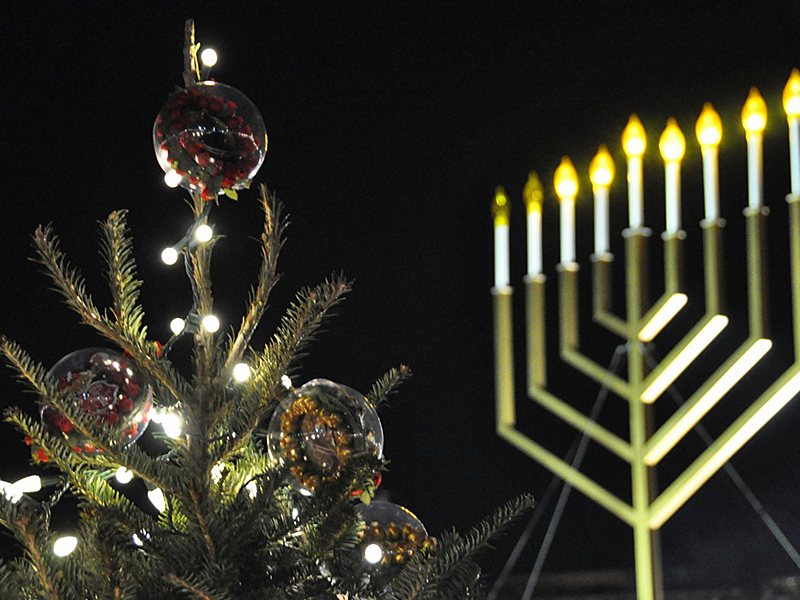Growing up in a conservative Jewish household, I was given three rules about dating by my somewhat overprotective Jewish father:
1. no tattoos;
2. no motorcycles; and
3. Jewish.
I attended Hebrew supplementary school, had a bat mitzvah and rejoiced in all the Jewish holidays (especially when that meant staying home from school). In all honesty, though, I never felt super connected to Judaism. I drank, smoked weed, got tattoos, dated non-Jews and sat on the back of a few motorbikes. One time in high school, I made my non-Jewish, motorcycle-driving boyfriend drop me off down the street from my parent’s house, so they wouldn’t see how I got home (or who I was with). Marrying Jewish was not high on my to-do list.
After university, I decided to teach English in Gwangju, South Korea. My parents weren’t overly thrilled with the idea. They probably lost more faith in their daughter ever finding a Jewish husband. After I arrived, there was a running joke that I was “the only Jew in Gwanju.” That was until I met a cute British boy on the bus who I soon found out considered himself “Jew-ish.”
“You speak Ivrit?” he enquired after we discussed our favourite destinations and I told him mine was Israel. We had been sitting next to each other on a four-hour bus trip from Seoul to Gwangju, where we were both going to be English teachers. “A few words,” I replied (literally just “Ivrit” and “shalom” – those Hebrew school lessons never really paid off). He let me know that he had been to Israel once with his Jewish father.
“I’m a halfie,” he said with a crooked smile and striking accent. “My mom is Christian, but I still had a bar mitzvah and grew up having Shabbat dinners.”
We spent the bus ride talking about our upbringing and our views on religion. He explained that the best part about being “half” was that you could explore both religions as deeply as you want and decide for yourself what resonates most.
“So if you had to choose?” I pushed, “if you had to pick one religion, what would you consider yourself?”
“Today, I’m Jewish,” he replied.
This idea of identifying with more than one religion was completely new territory for me. Although this notion of being “half” may seem desirable to some, it seemed likely to also come with many hardships, even the possibility of rejection from both faiths and a loss of faith in God altogether.
I later learned that my fellow traveller’s grandparents were also from two completely different worlds: on one side, a Jewish-German family who survived the Holocaust; and on the other, French Christians who lived in German French territory during the war. That must have made for some very interesting family gatherings.
Years later, when I told my parents I was marrying a “half” Jew who grew up with parallel values, morals and traditions as me, they accepted my British bus boy, now husband of five years, with open arms.
At this time of the year, we join my parents for latkes, dreidel playing and the bestowing of Hanukkah gelt. My husband eagerly participates and knows some of the holiday songs better than me. We also put Christmas Eve aside, to remember the other half of his culture.
It’s not perfect, but it works for us.
